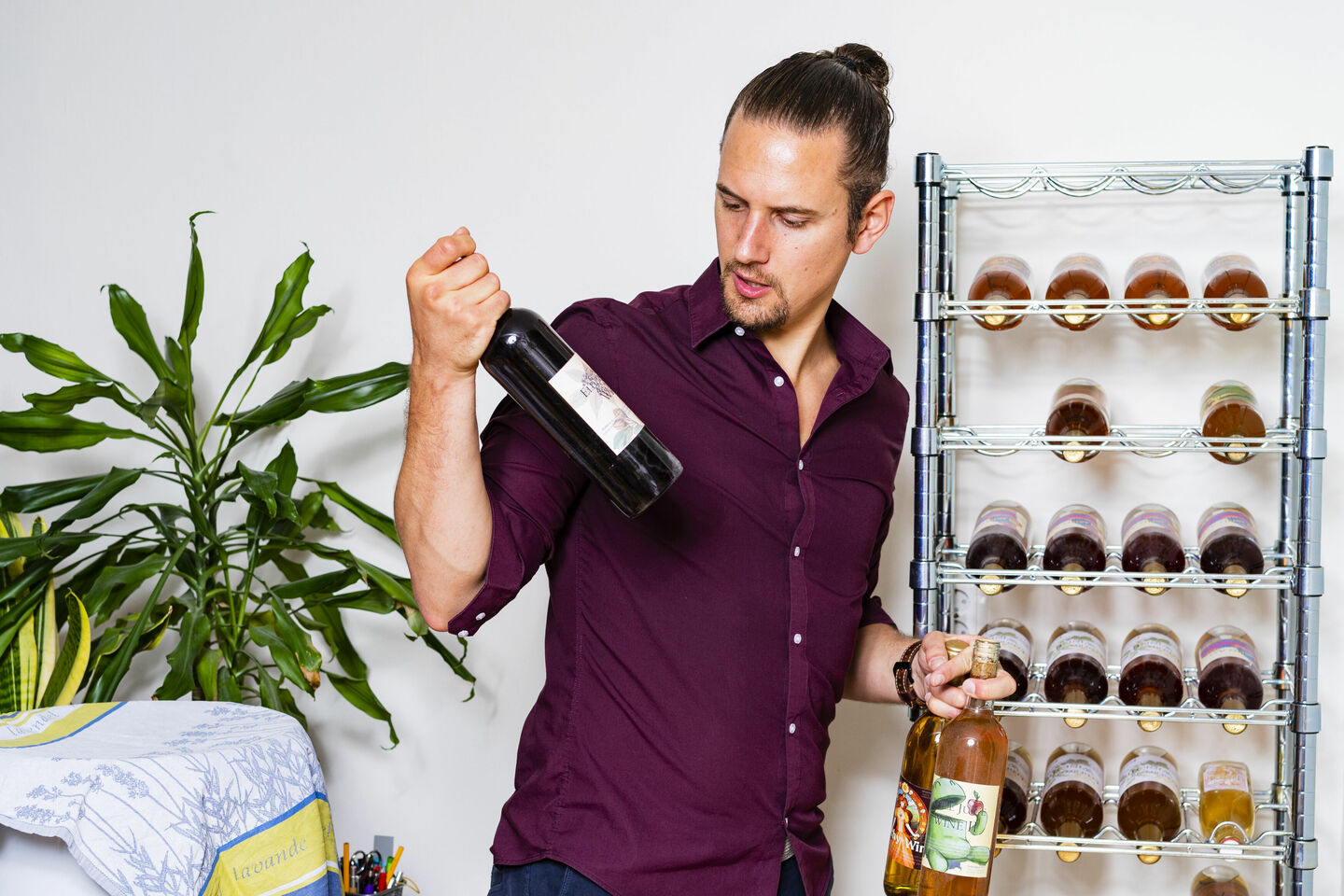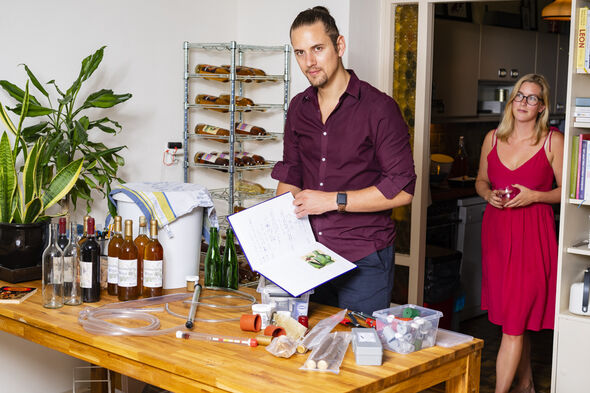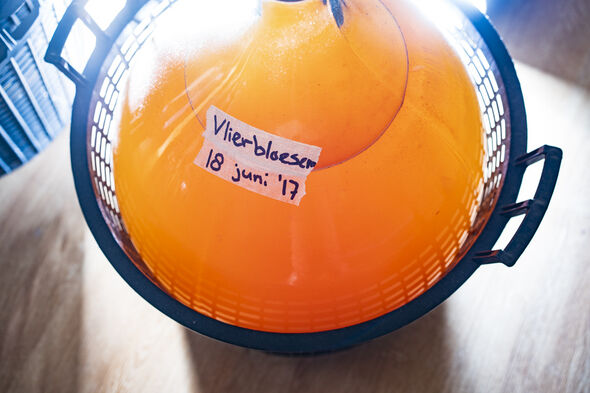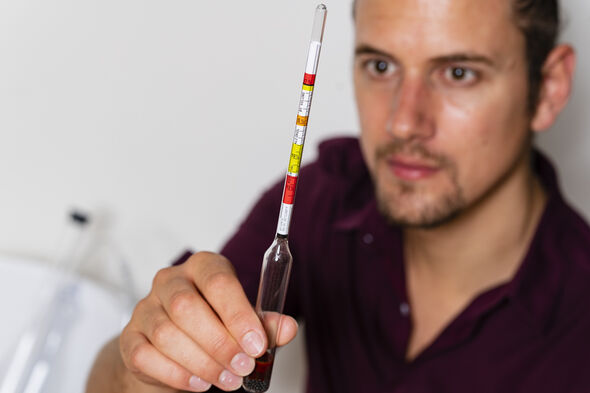
"I make wine from everything, except from grapes"
Wine surely is a textbook example of chemistry. A perfect hobby for a chemist. "My father has been making wine for a long time. So I grew up with it. As things go, you sometimes make a bottle of wine together. And after a while you have 140 liters of wine in your living room." Aldo Brinkman is science officer at the Communication Expertise Center of the TU/e. Because of his chemical background he makes sure the research at the university is translated well for the general public. In his free time he still experiments, with tasty results.
Brinkman's passions for chemistry, science and cooking have never left him. His hobby, making wine, brings them all together. "I always wanted to be a chef when I was younger. That may not have been entirely successful. But my hobby brings my interests together: both cooking and chemistry are about mixing, heating, cooling down, creating a reaction. However, the final product in chemistry is better not consumed."
From elderberry to wine
"I make wine from everything, except from grapes. (Then you’re not allowed to call it wine, are you?) Appel wine, banana wine, tea wine, honey wine, elderberry wine, elderflower wine: my living room is full of it." They are a little different than all those grape wines in the supermarket. But those supermarket wines really don’t have to be bad. "When is a wine a good wine? If you like it. I am very much against that decadent whining about wine. Don’t make things too difficult. But you have to open a bottle with love. Don’t just tear off the foil but open it with a little attention. Wine is connected to what is around it: half of the taste is in the experience."
So the best wine does not exist. Though there are things that are universally found to be tasty or dirty in a culture. "Now take liquorice, which we collectively think is a delicacy in the Netherlands. But in many other countries they do not agree on that. In addition, sweet things are considered tasty because nature has taught us that. And a third reason why we find something appetizing or unappetizing are our personal memories. We attach a lot of value to the experience when we ate or drank something at a very nice place or moment in our lives. If we then eat or drink it again later, we automatically associate that drink with that fine moment or that pleasant place, which also influences our taste perception of the drink. That's also why I love elderflower wine, because that's what my parents used to make. It's like nostalgia for me. Undoubtedly one of the reasons why I enjoy it still so much today."
'Scheikundejongens'
Wine is a good example of the many forms of chemistry that we face every day. During his Bachelor’s degree studies in Chemistry, Brinkman and his fellow student Mark Vis started a blog: de Scheikundejongens, which translates as ‘the Chemistry boys’. The blog makes science accessible to a wide audience. "We were approached by a lot of journalists: there is a need for someone who can explain chemistry." Brinkman has turned translating science into his core business. First as a scientist with a blog, then as a science journalist for television and now as a science officer at the TU/e.
"I think it's important that people know what kind of awesome research we do here at the TU/e. That is why I became a science officer. From society there is the critical question: 'Why do we conduct all that research?' The challenge when translating science into language everyone understands is often the angle of approach. The complicated thing is that a scientist can find a certain point interesting, a layman has yet a different angle, while a journalist, for example, is exploring a third corner. Then you aim for balance."
The most beautiful sound
Besides working, it is also important to relax. Many people do that by means of a sport or a hobby. That relaxing factor is also important for Brinkman when making wine: "Having a hobby is soothing. It’s nice to work with your hands from time to time: cleaning bottles, getting fruit, being busy with the process. And when I put the airlock on the bottle and I hear that bubbling sound, that's the most beautiful sound there is. That’s just peace."
And when I put the airlock on the bottle and I hear that bubbling sound, that's the best sound there is. That’s just peace




Discussion